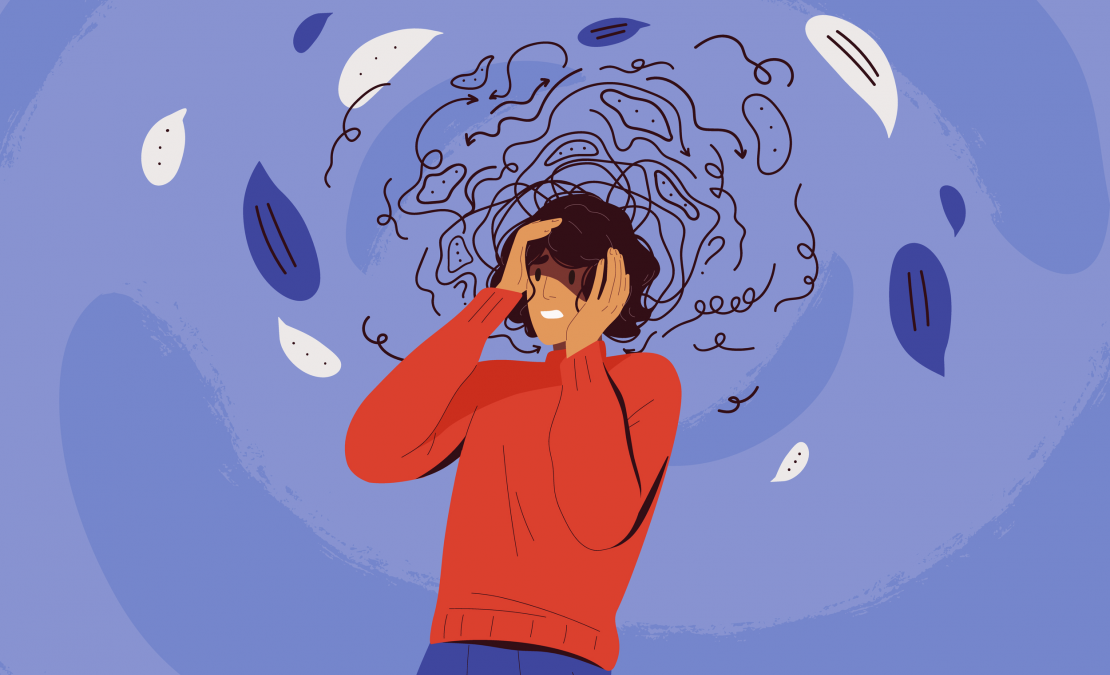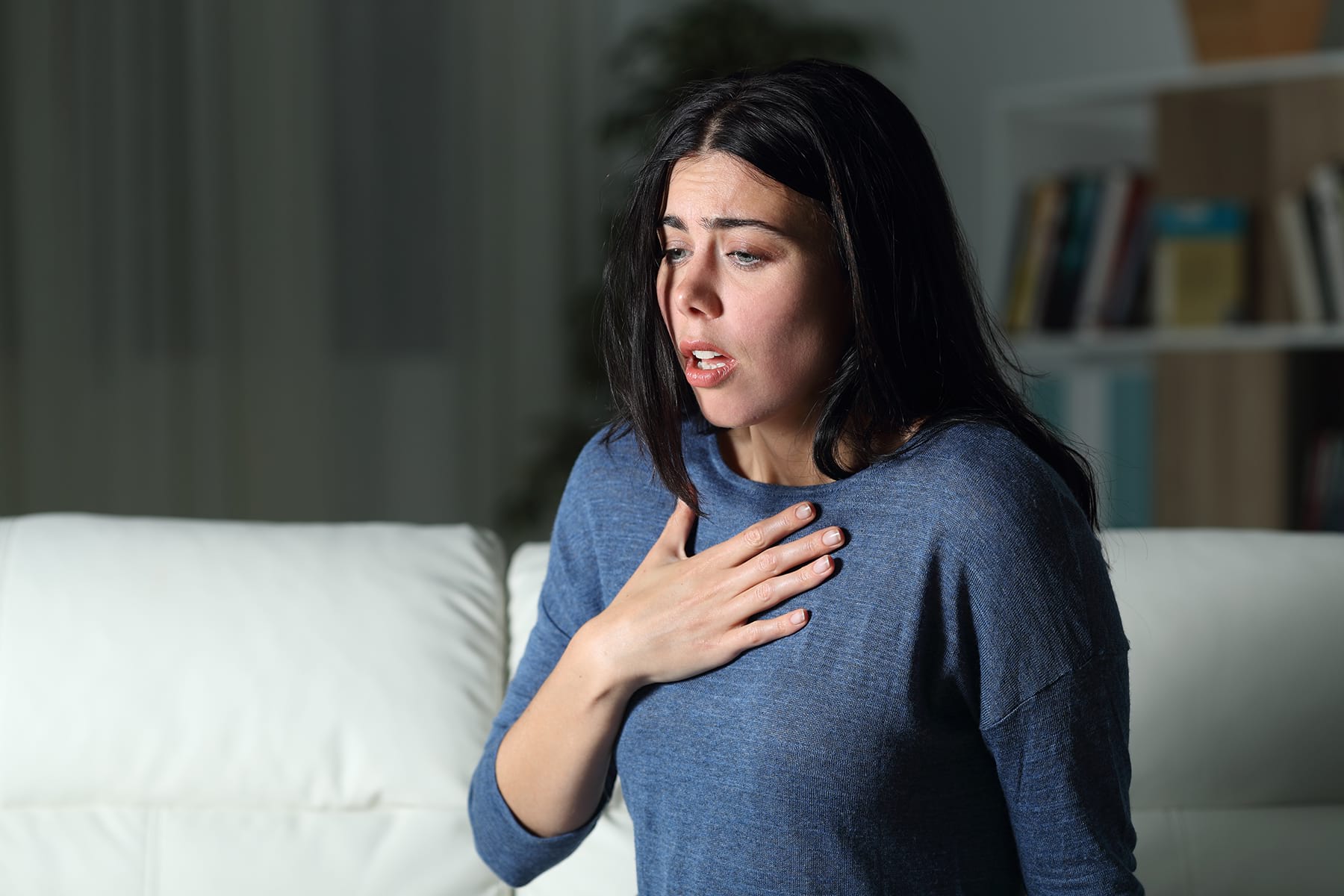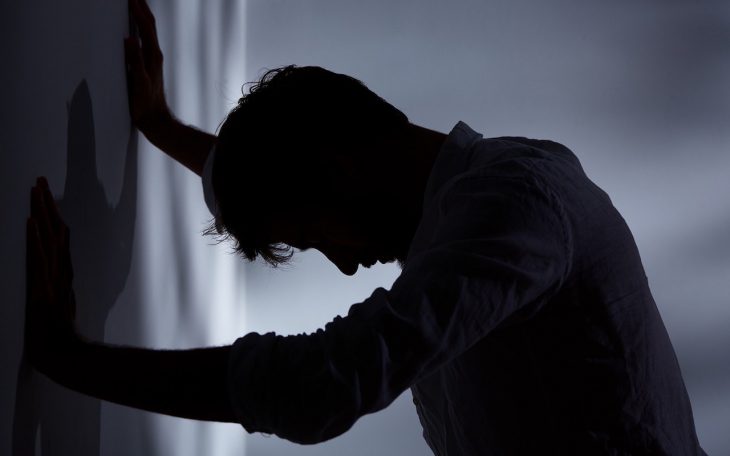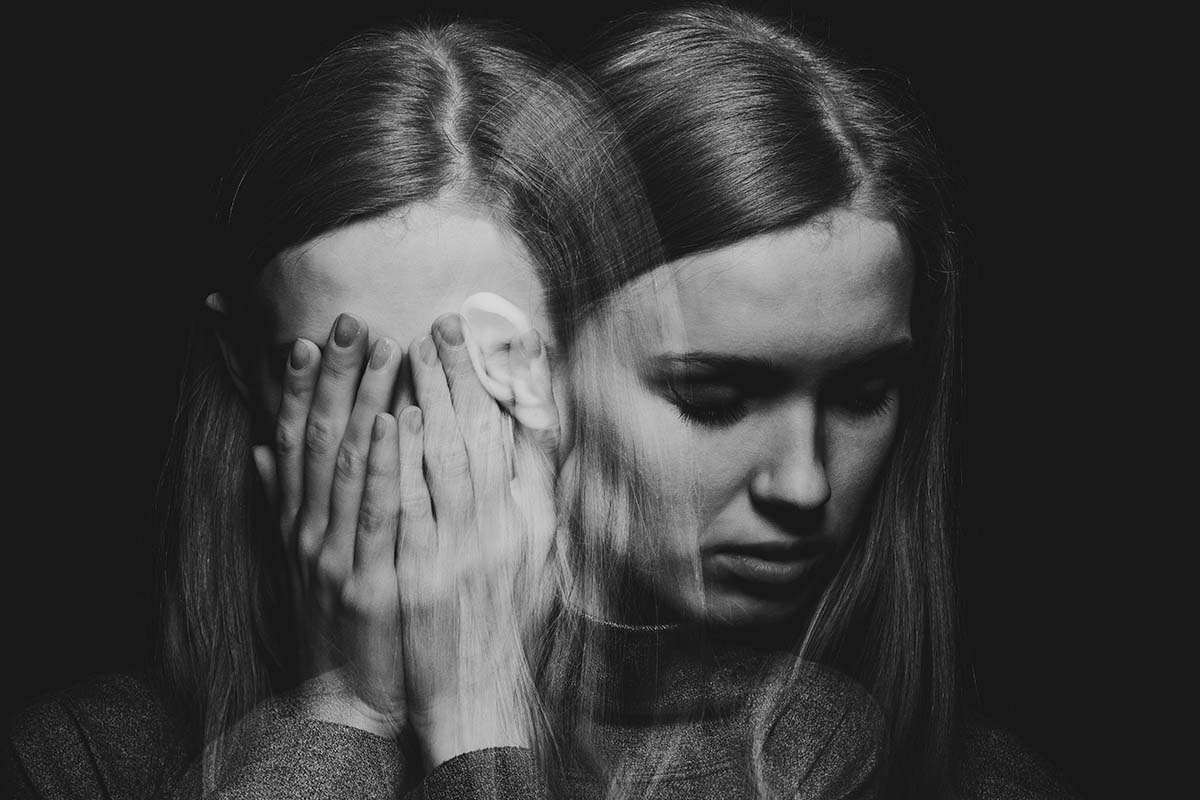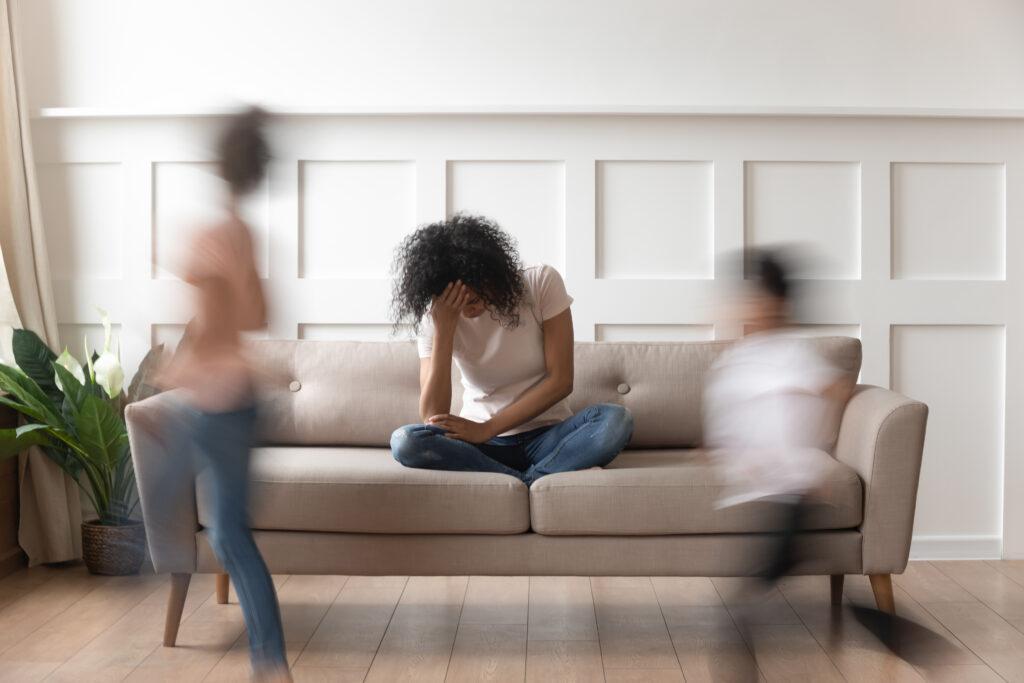Anxiety is a natural way your brain responds to stress and warns you about impending danger. Everyone experiences anxiety occasionally, whether at work, before taking an exam, or before making a significant decision.
There is nothing abnormal about anxiety on occasion. Anxiety disorders are a collection of mental illnesses that cause uncontrollable worrying and fear. Anxiety problems may cause you to avoid work, school, family gatherings, and other social situations that aggravate or provoke your symptoms. Many of these individuals can learn to control their emotions with the right therapy.
This post provides an overview of anxiety disorders, including anxiety types, symptoms, causing factors, and risk factors of the disease.
Contact us for a free 15-minute consultation about our energy healing services in Beverly Hills
Contents
What Does Anxiety Disorder Entail?
In response to challenging events, we all behave differently. We experience anxiety feelings like stress, anxiety, concern, or worry until the stress factor has passed. It is a perfectly normal reaction to stressful events or circumstances.
However, you may develop an anxiety disorder if your problems become chronic and overwhelming or if they conflict with your regular life.
Even if a source of stress isn’t apparent, you’ll probably suffer an intense sense of anxiety that can be overwhelming and continuous. The consequences are long-term and can cause significant disruption in daily living.
Anxiety disorders are the most frequent psychological disease issue in the United States, according to the Anxiety & Depression Association of America. Approximately 31.1% of American adults suffer from anxiety at least once during their lives.
Defining Anxiety Attack: What Does It Mean?
An anxiety attack, or panic attack, is characterized by a sudden outburst of extreme anxiety accompanied by physical symptoms. These symptoms include breathing difficulties, chest aches, and disorientation.
The words anxiety attack and panic attack are sometimes used equally. Panic episodes can last anywhere between 5 and 30 minutes.
A panic attack is terrifying, and those who have had one are generally afraid of experiencing another. Many patients will get it through considerable efforts to prevent conditions that could lead to a new attack.
Anxiety Symptoms
Anxiety can cause symptoms such as:
- Extreme concern and fear
- Restlessness
- Agitation
- Panic
- Irritability
- Illogical fear of danger
- Racing thoughts
- Shortness of breath or rapid breathing
- Troubles with sleep
- Stomachache and headache
- Insomnia
- Throbbing heart
- Muscular strain
What Are the Different Types of Anxiety Disorders?
Anxiety or anxiety disorders come in a variety of forms. The National Institute of Mental Health reports some are more frequent types.
Generalized Anxiety Disorder
You will probably suffer a lot of difficult-to-control worries if you have GAD. Anxiety is often characterized by a tendency to overanalyze and brood over upcoming events.
For people with GAD, experiencing symptoms, you lack an explanation is not unusual. Symptoms like those above are prevalent most weekdays and average for about six months.
Read more Self strategies for GAD
Panic Disorder
An individual with Panic Disorder has a mental illness. People with panic disorder might experience panic attacks that somehow interfere with their daily lives. You may also experience a panic attack if you are afraid of losing control, drowning, or going crazy. They can also strike suddenly, sometimes seemingly out of the blue. In most cases, panic attacks peak in 15 minutes.
It’s important to realize that panic attacks can occur despite having panic disorder. When a person has a panic disorder, they either ignore circumstances that they believe may trigger a panic attack (like going to the mall, to the movies, or driving) or fret about whether it will happen. A panic attack should not be attributed to phobias or social anxiety in people with panic disorder. These symptoms are not irreconcilable with life, considering their severity. They frequently occur without notice and are accompanied by bodily symptoms such as:
- Shortness of breath
- Chest pain
- Sweating
- Shaking
- Dizziness
- Nausea
- Quivering
- Beats in the heart
- Loneliness
- Higher heart rate
- Flushes, both hot and cold
As a result of their anxiety, some people suffer from these symptoms. A panic attack is characterized by the intensity and suddenness of physical feelings. Unpredictable panic attacks are the hallmark of panic disorder.
The duration of a panic attack is usually less than 20 minutes
Obsessive-Compulsive Disorder (OCD)
OCD patients have trouble controlling their thinking. They may discover themselves doing the same things repetitively.
DDD
If you have OCD, you may be obsessed with cleanliness and keeping everything in line. You might be concerned about your own or someone else’s thoughts of hatred against you.
You can also struggle to control your emotions on taboo topics like sexuality, faith, or aggression. Some people perform repetitive tasks, such as double-checking that a door is closed or numbering objects.
If you exhibit any of the subsequent symptoms, your doctor may diagnose you with OCD:
- spend time thinking or acting this way every day
- find no joy in your life due to your thoughts.
- Your thoughts and behaviors have an enormous influence on your day-to-day life.
Visit the video for more information on 7 Ways to Reduce Your Anxiety
Post-Traumatic Stress Disorder (PTSD)
Anxiety is associated with PTSD in persons who have experienced a stressful event in the past. It’s a procedure that can linger for months after the occurrence, mainly if it’s not addressed.
In some cases, postraumatic stress disorder (PTSD) does not reveal its symptoms until months or even years after the event.
As a result of PTSD, you may experience the following symptoms:
- Flashbacks
- Bad dreams
- Frightening thoughts
- Feelings of tension and anxiety
- Trouble sleeping
- No apparent reason for being anger
Some individuals modify their daily lives to avoid being reminded of the incident.
Anxiety Disorder in Social Situations
Social anxiety disorder sufferers (also referred to as social phobia sufferers) have a chronic fear of being judged by others while having acute uneasiness when interacting with them. They fear making a mistake, appearing dumb, or being humiliated. Anxiety can manifest itself in a single situation, such as making a speech at school, or it can manifest itself in various settings in which children are nervous about interacting with classmates or teachers. Anxious individuals may postpone engaging with others while being at ease with intimate friends and family. An anxious person may also ask others to order food for them in a restaurant. The problem of timidity and social anxiety disorder is not the same. Shyness is a mild difficulty in dealing with people in specific contexts, whereas social anxiety disorder interferes with a person’s ability to operate at home, at school, or work. Social anxiety disorder is not always indicated by sporadic, temporary anxiety in social circumstances.
Phobia
A phobia is an abnormal fear of a particular animal, thing, or situation. Fears of dogs, spiders, heights, blood draws, the dentist, or anything else could be considered phobias. Before a worry can be classified as a phobia, it must persist for at least six months. When an individual has a phobia, they will either escape the feared thing or event or confront it, despite the discomfort it produces. It is not a phobia for a 3-year-old to be scared of the dark; it is a maturity-level fear.
- Acrophobia (a fear of heights) occurs when you are afraid of heights.
- Claustrophobia is the terror of being trapped (fear of tight spaces)
- Aerophobia is the aversion to flying (fear of flying)
- Hemophobia is the fear of blood
- Trypanophobia is a fear of needles
- Aquaphobia is the phobia of water (fear of water)
Separation Anxiety Disorder (SAD)
When someone has a separation anxiety disorder, they are always worried about getting apart from or missing a caretaker or connection role. Separation anxiety is a common component of a child’s initial stages, but it can interfere with their growth when it gets extreme. Separation anxiety causes people to worry about what will occur to their carer if they are apart, such as if the caretaker dies or gets ill. The individual is also concerned about what will occur to them if they are removed from their caretaker, such as being abused or harmed. Separation anxiety is often triggered by a stressful event or tragedy that can result in the individual appearing “needy” to their caregiver and having trouble getting out of bed for school, staying at home alone, or resting alone. An example would be a child who lost a pet or a young person moving away from their parent’s house for the first time.
The Secret of Eliminating Anxiety
Agoraphobia
Agoraphobia is a common reaction to panic disorder. If you suffer agoraphobia, you are terrified of experiencing a panic attack or of anything horrible happening in a specific location – usually outdoors in your house.
You may resist going there, isolating yourself to your home to prevent the potential of something horrible occurring where you won’t be able to get aid or assistance.
You won’t attend frightening events or locations under any circumstances.
Selective Mutism
It is a form of social anxiety in which young children who regularly speak with their families don’t speak in public, for instance, when attending school.
Medicine-Induced Anxiety Disorder
Symptoms of anxiety disorders can be triggered by certain pharmaceuticals or illegal drugs or by stopping the use of several drugs.
What Causes Anxiety Disorders to Develop
Anxiety disorders are caused by various factors that experts are still trying to figure out. A complicated set of factors determines who gets one and who doesn’t.:
Genetics
Anxiety disorders can be inherited.
The Chemistry of the Brain
Some research suggests that anxiety disorders are associated with malfunctioning neural pathways that regulate feelings and anxiety.
Environment-Related Stress
Anxiety disorders may be triggered by stressful situations experienced in the past. Childhood abuse, the death of a loved one, or being assaulted or seeing aggression are all common triggers.
Addiction to Drugs or Alcohol
Some medications can mask or reduce anxiety symptoms. Anxiety disorders often coexist with substance abuse and drinking.
Medical Problems
Some heart, lung, and thyroid conditions can mimic or exacerbate anxiety symptoms. It’s essential to undergo a comprehensive physical examination when consulting your doctor about anxiety.
Risk Factors Contributing to Anxiety Disorders
Certain factors can also induce anxiety. You might not be able to alter all risk factors, but you may be able to modify some.
Background of Mental Illness
A mental health issue such as depression increases your risk for anxiety disorder.
Sexual Abuse as A Child
Childhood abuse or neglect, such as emotional, physical, or sexual abuse, also increases your risk for anxiety disorder later down the line.
Trauma
You’re more likely to develop posttraumatic stress disorder (PTSD) after experiencing a traumatic experience, which can lead to panic attacks. Stress and unfavorable events such as losing a parent when you’re young can increase anxiety disorders.
An Illness or Long-Term Health Problems
Consistent worry about your or a loved one’s health can lead to anxiety.
Abuse of Alcohol and Drugs
You may develop anxiety problems if you drink or use drugs. Some individuals take these drugs to mask or alleviate anxiety levels.
Shyness in Children
During childhood, shyness and retreat from new situations and people are associated with social anxiety in adults.
Low Self-Confidence:
A negative self-perception can contribute to social anxiety disorder.
Get familiar with Different types of therapies here, book a session
The Bottom Line
It is not easy to live with an anxiety disorder. Chronic stress and anxiety can leave you exhausted and terrified. If you’ve consulted your symptoms with your doctor, you have already begun releasing “your anxiety.”
It can be challenging to find the proper treatment or cure for you if you suffer from many anxiety disorders. Usually, individuals suffering from an anxiety disorder need both medication and therapy. You can try to handle your condition with the proper care and treatment.
References
Digital Communications Division. (2014, February 12). What are the five major types of anxiety disorders?. HHS.gov
Bhargava, H. (2020, June 25). Anxiety Disorders: Types, Causes, Symptoms. WebMD
https://www.webmd.com/anxiety-panic/guide/anxiety-disorders
Lidberg, S. Reviewed by Saripalli, V. (2021, October 08). What Are the Types of Anxiety Disorders?. Healthline
https://www.healthline.com/health/anxiety/types-of-anxiety
6 major types of anxiety disorders. (2019, July 10). CHOC Children’s Blog
https://health.choc.org/6-major-types-of-anxiety-disorders/
Muskin, Ph. (2021, June). What Are Anxiety Disorders? – American Psychiatric Association
https://www.psychiatry.org/patients-families/anxiety-disorders/what-are-anxiety-disorders
Coelho, S. Medically Reviewed by Legg, T. (2020, June 11). Anxiety disorders: Types, causes, and symptoms – Medical …
https://www.medicalnewstoday.com/articles/types-of-anxiety
